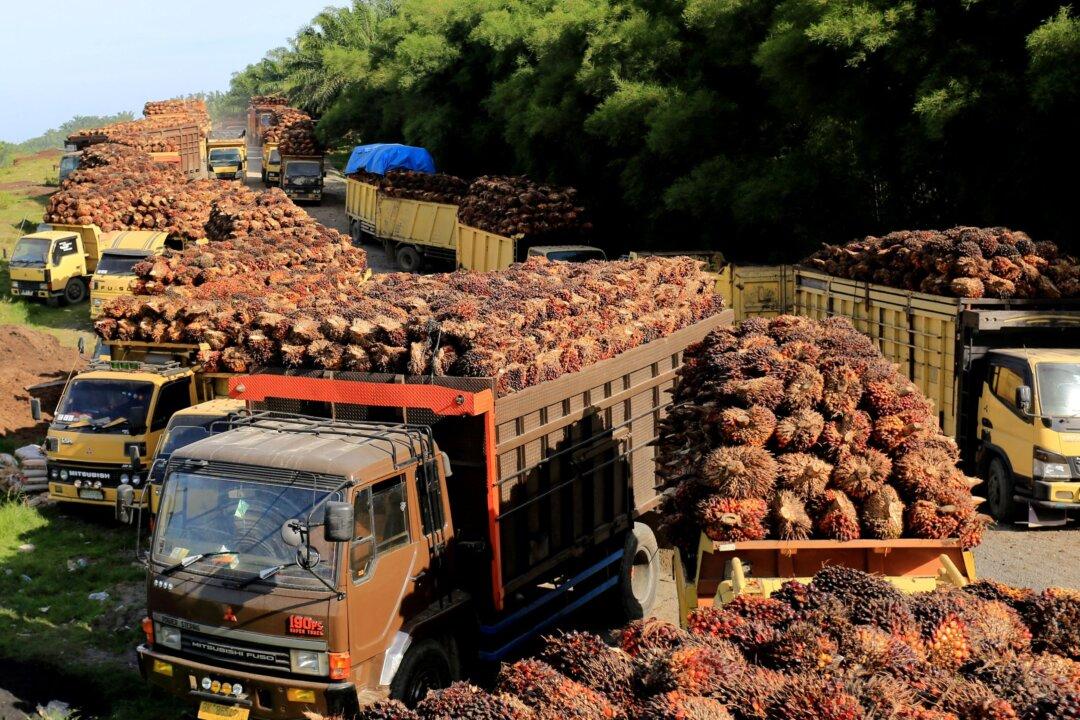JAKARTA—Indonesia will slash its combined maximum crude palm oil export and levy rate to $488 per metric ton from $575 to encourage shipments, Trade Minister Muhammad Lutfi said on June 7.
Indonesia, the world’s biggest palm oil producer, has allowed palm oil exports to resume after a three-week ban, although progress has been slow due to red tape, keeping palm mills’ storage tanks full.





